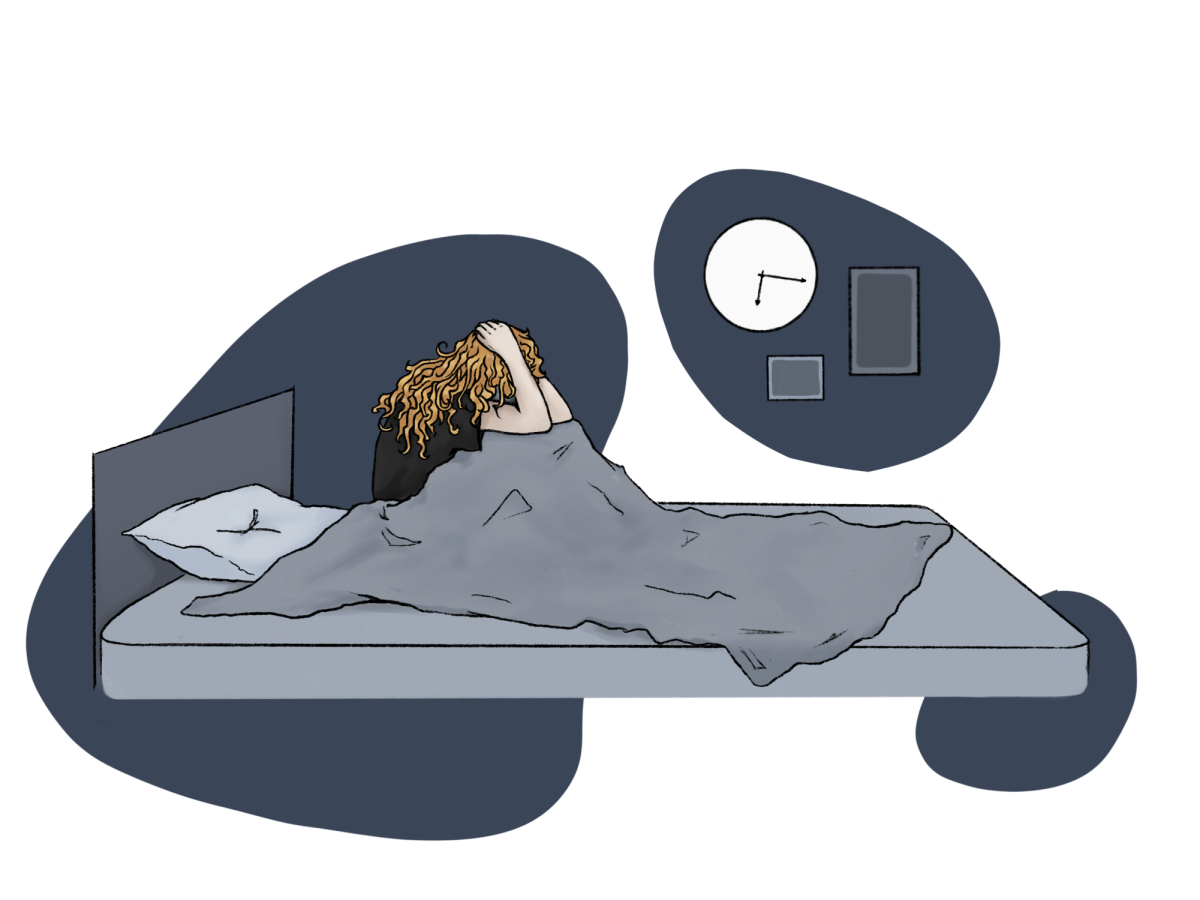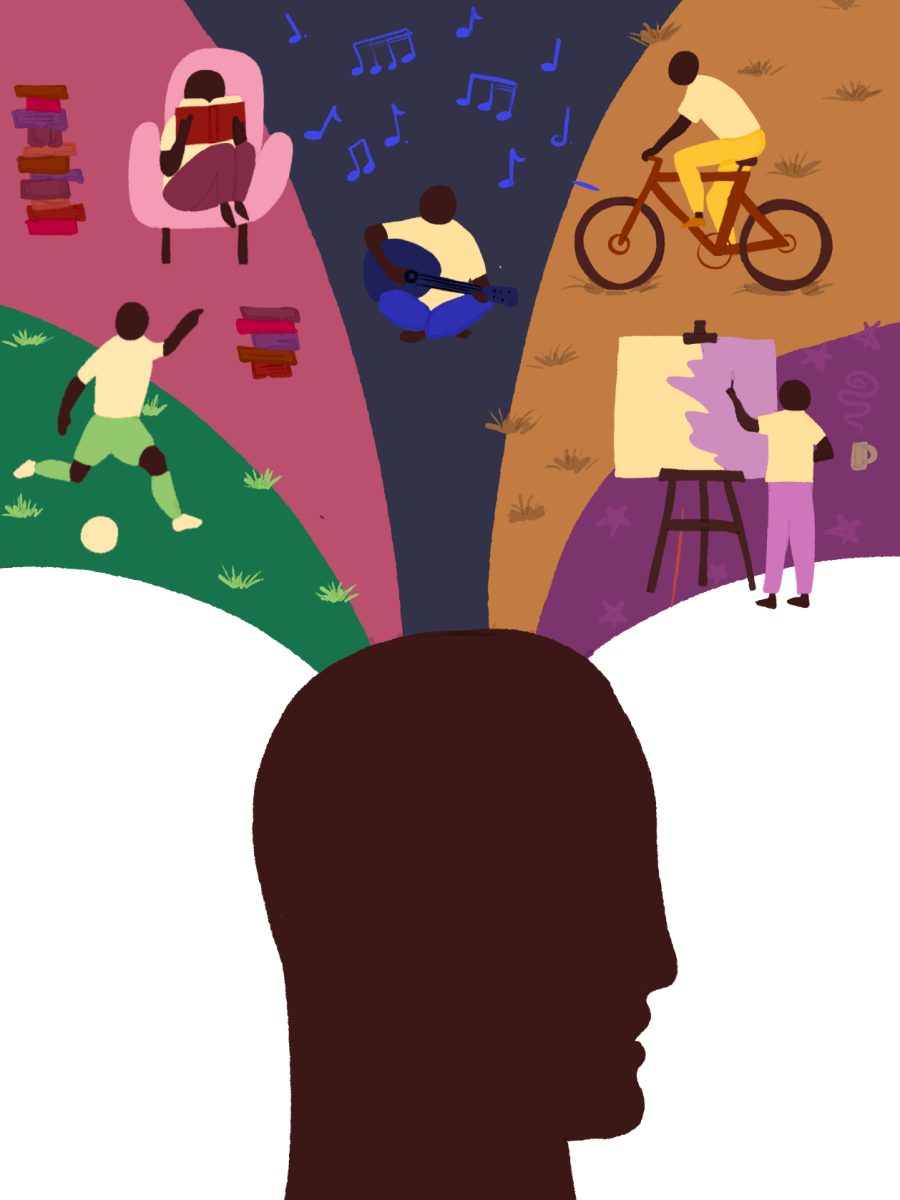Does the early morning bell create chaos for students? Or is 8:15 a.m. a perfect time for Pinewood to start classes?
Some, especially parents, may argue that it is reasonable, as students can wake up at 7 a.m. or 7:30 a.m. and arrive at school on time. However, many parents fail to realize that students require as much sleep as possible, especially after a long night of homework. Similarly, they find the early times beneficial for them, allowing them to commute to the office for work on time. However, students should still maximize their time in bed, as sleep is crucial for a long day ahead of them.
According to the National Library of Medicine, sleep is especially important for teens compared to adults, and being tired affects your memory, your concentration, and, most seriously, your motivation. Personally, I completely agree with this quote. Just last week, I was loaded on homework and only had time due to extracurriculars and sports, to start at around 9 p.m., leading to me sleeping at 12:30 a.m. The next day, I woke up super tired and did poorly on my history exam, affecting my grade drastically.
Sleep deprivation has also been found to affect the grades of students. Researchers at Carnegie Mellon conducted a study among 600 first-year students across five studies at three universities. They found that for students who fell under six hours of sleep, there was a decline in their academic performance that day. Additionally, researchers found that for every hour of sleep you lost daily, that corresponded to a decline of 0.7 in a student’s GPA. For context, losing five hours of daily sleep led to an average 3.5 loss of a student’s GPA.
Additionally, less sleep than the recommended nine hours of sleep for teens leads to weaker bodies, as sleep helps strengthen bones and the immune system. The National Heart, Lung, and Blood Institute gives examples of how sleep deprivation can affect the body physically and even lead to other illnesses. “The damage from sleep deficiency can happen in an instant (such as a car crash), or it can harm you over time. For example, ongoing sleep deficiency can raise your risk of some chronic health problems. It also can affect how well you think, react, work, learn, and get along with others.”
So what’s stopping Pinewood from making a change? Assistant Head of Upper Campus Haley Hemm explained that throughout Pinewood, after-school activities such as clubs, team sports, and events must meet certain times and deadlines. For example, soccer must start right after school because of early sunsets.
“We don’t have lights for our fields, and we only have one gym on campus, and especially one gym is really hard for three basketball teams,” said Ms. Hemm. Students’ daily commute also plays a factor in needing an early start time, as it contributes to easing traffic caused by the busy work rush and students at nearby schools commuting simultaneously.
However, a change must be made to implement a later start time at Pinewood. Many students have expressed opinions against the current time. Senior Sachi Urushima said she believes her experience as a senior has given her a different perspective on a new start time.
“Being a senior has made me realize how important sleep is because, in the first semester, I had a lot of college applications due, which took a lot of my sleep time,” Urushima said.
“I think having a later start time would take a lot of stress off people’s days, even if it was a fifteen-minute difference,” said Senior Sachi Urushima.
Similarly, teachers also express similar sentiments to Urushima, as Mandarin teacher Heidi Wang shares her opinion against the current school start time.
“I believe that we can have a later start time, such as 8:30 a.m., or have switching block days where the block days have different start times,” said Ms. Wang. Such ideas could benefit students greatly if well implemented. In the end, a later school start time seems to be one of the students’ top priorities, as it can give the whole school a chance to do better in school and have better mental health for the day.






